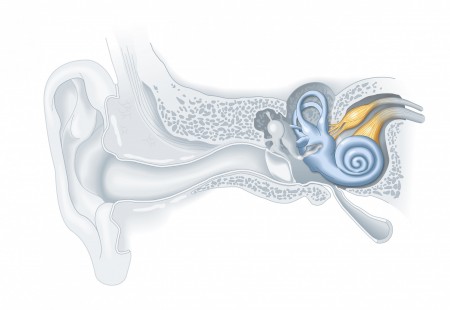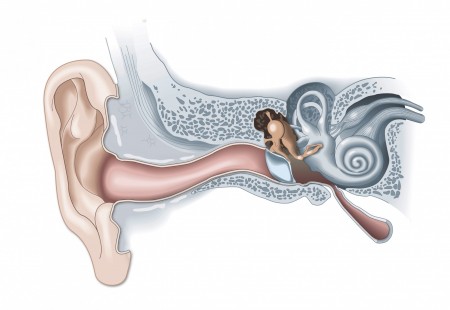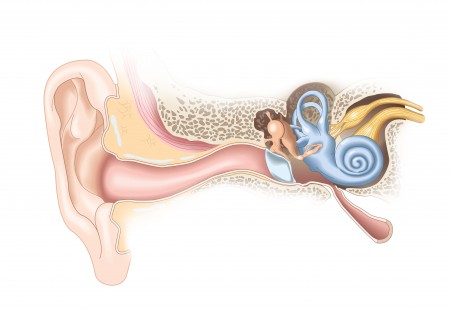Types of Hearing Loss
There are three main types of hearing loss: sensorineural, conductive, and mixed.
There are three main types of hearing loss: sensorineural, conductive, and mixed.

Sensorineural hearing loss is a term used to describe hearing loss that results from either damage to the inner ear or the auditory nerve that sends the information to the brain.
More here >If we break the word apart we get sensory and neural - two different potential causes to a hearing loss. A sensory loss refers to damage to the inner ear (the cochlea), where as neural loss refers to damage to the auditory nerve cells (or cells in the central pathway). It is very difficult to determine whether a loss is the result of one or the other, and often can be a combination of both, which is why we refer to this type of hearing loss as sensorineural.
Common causes for sensorineural hearing loss are aging (presbycusis), noise, and genetics.
Sensorineural hearing loss is permanent and there is no known cure. However, we can treat the loss by using hearing aids. Hear more >

Conductive hearing loss refers to some type of obstruction to the outer or the middle ear and prevents sound from getting to the inner ear.
More here >Conductive hearing loss means there is a problem sending the sound to the inner ear, sound is not conducting through properly. The inner ear is not damaged and capable of representing the sound accurately to the nerve. Depending on the cause, this type of hearing loss may be medically treatable so your audiologist will always discuss appropriate referrals when necessary.
Common causes for conductive hearing loss are ear infections, earwax buildup, and damage to the eardrum.
A full diagnostic evaluation will allow your audiologist to determine what type of hearing loss you have. Hear more >

Mixed hearing loss is a combination of both conductive and sensorineural hearing loss.
More here >A mixed hearing loss means there is some type of obstruction where sound cannot get to the inner (conductive hearing loss) AND some type of damage to the inner ear or the nerves (sensorineural hearing loss).
A full diagnostic evaluation will allow your audiologist to determine what type of hearing loss you have and how much of your loss is related to conductive or sensorineural. Hear more >